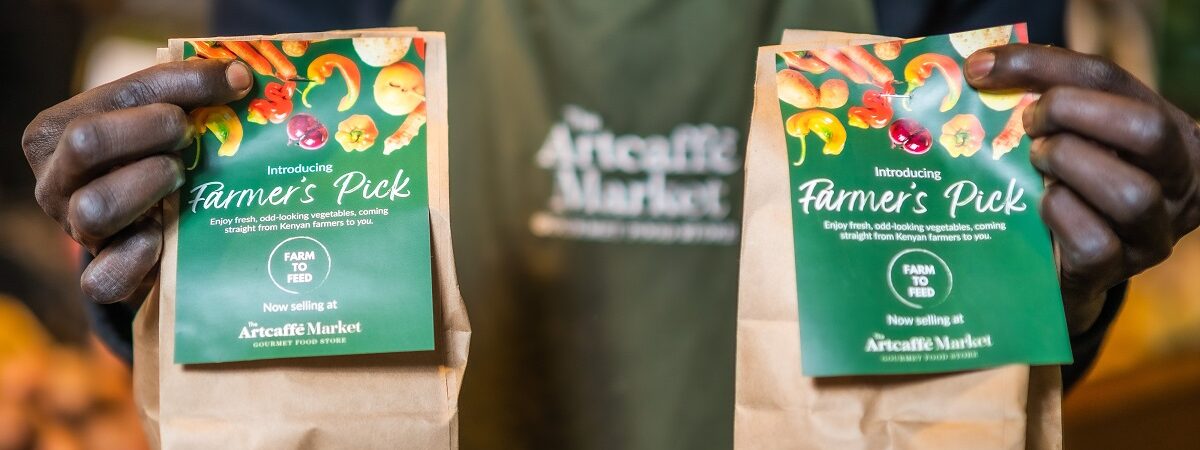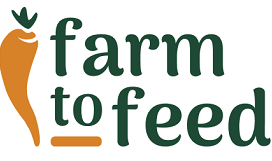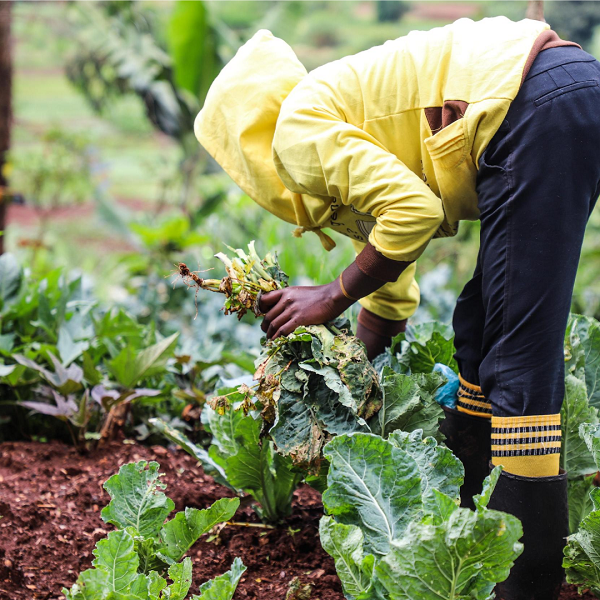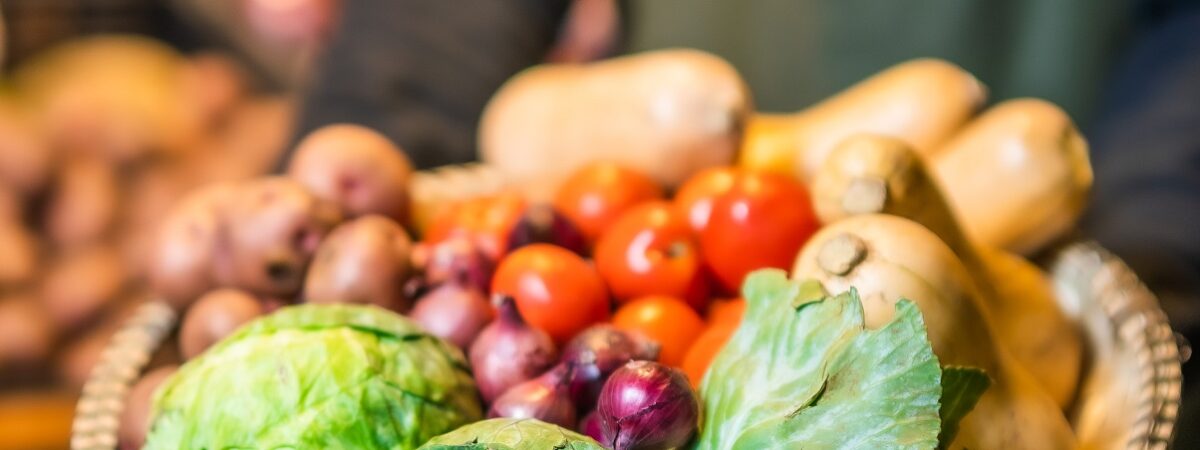
Farm to Feed
Model & Strategy
Farm to Feed (FTF) is a women-led social enterprise that is increasing smallholder farmer incomes and reducing food loss by off-taking full harvests from smallholder farmers and creating a market for “odd-looking” and surplus produce that would otherwise go to waste.
The Problem
Globally, almost one-third of all food produced is lost or wasted. In sub-Saharan Africa, nearly half of fruits and vegetables never make it to market for consumption. Kenya alone — where 75% of the population depends on agriculture as a source of income — loses more than US$1.5 billion annually to post-harvest waste. Further, food loss and waste account for 10% of global greenhouse gas emissions. Current efforts to mitigate food waste and enhance farmers’ livelihoods have been insufficient, leaving a critical gap in sustainable food systems and economic equity for smallholder farmers.
In recent years, the focus on sustainable agriculture and reducing food waste has sharpened in sub-Saharan Africa, emphasizing the pivotal role of smallholder farmers. These farmers — who are crucial to food security and environmental sustainability — face a pressing issue: approximately 50% of fruits and vegetables they cultivate in the region never reach markets due to aesthetic imperfections. As a result, substantial waste is created while farmers suffer staggering income reductions of at least 15%, exacerbating their vulnerability. There is a critical need for innovative approaches that can transform agricultural practices, improve farmer livelihoods, and contribute to global sustainability goals.
The Solution
Farm to Feed offers a tech-enabled, market-driven solution that connects smallholder farmers with buyers who accept and value aesthetically imperfect produce. Their end-to-end digital platform facilitates the off-take of entire harvests — including “odd-looking” fruits and vegetables that traditional markets would typically reject — and delivers this produce to buyers.
To connect buyers to imperfect fruits and vegetables that would otherwise go to waste, FTF first onboards smallholder farmers to their digital platform and collects data about the type, quantity, and quality of their produce, including the items traditional markets may reject due to appearance. Once their produce is listed, FTF’s e-commerce platform serves as the primary marketplace for transactions, where buyers — including commercial kitchens, retailers, schools, and hotels — can browse the available produce and place orders. After a buyer places an order, FTF coordinates the timely delivery of this produce via their small in-house fleet of trucks fleet of trucks. Through this unique model, FTF effectively reduces food waste and boosts the demand for sustainably sourced produce from zero-loss supply chains.
FTF’s path to scale is driven by a strategic focus on value addition through the semi-processing of high-demand produce such as potatoes, carrots, and onions to extend the shelf life of rescued produce and tap into new markets in the East Africa subregion and globally. FTF is also leveraging strategic partnerships with well-known retail and distribution partners such as ArtCaffé, Mada Hotels, and LSG Sky Chefs to scale their operations further.



Claire is a second-generation Kenyan with Dutch heritage. After earning her MSc in the Netherlands and working in Southeast Asia, she returned to Kenya to work for PwC, managing large-scale strategy projects across East Africa. At the height of the pandemic, Claire founded Farm to Feed as a COVID emergency relief and pivoted in mid-2021 to a scalable business addressing food loss. Claire received the Bayer Foundation Women Empowerment Award in 2022 and is a Cartier Women’s Initiative fellow.

Impact
Rescued over 930,000 kg of produce
Avoided 1,227 tons of CO2 emissions
Delivered 10.7 million vegetable portions

